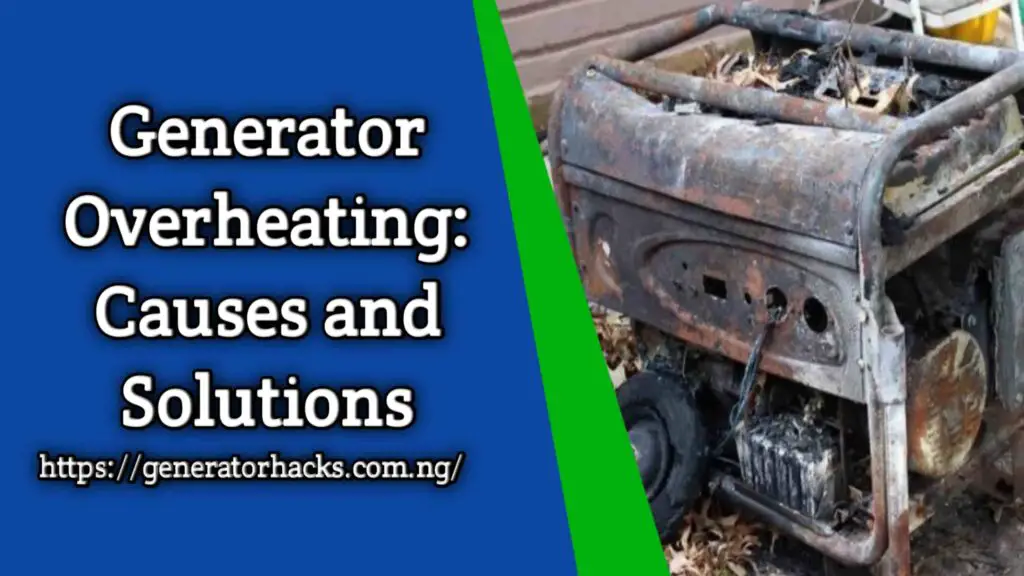As an Amazon Associate, we earn from qualifying purchases. This does not affect the price you pay or the quality of the products you buy. For more information, please read the full affiliate disclosure here.
White smoke from diesel engine when idling is usually a sign of incomplete combustion of the fuel, which can be caused by various factors such as faulty injectors, low compression, coolant leakage, or cold weather.
Depending on the severity and source of the problem, white smoke can be a minor annoyance or a major threat to your engine’s health. In this article, we will explain the common reasons and solutions for white smoke from a diesel engine when idling.
Diesel engines are known for their durability, efficiency, and power, but they also have some drawbacks, such as producing more emissions and noise than gasoline engines.
One of the most noticeable and worrisome signs of a diesel engine problem is white smoke coming from the exhaust, especially when the engine is idling.
White smoke from a diesel engine when idling is not normal and should not be ignored, as it can indicate a serious issue that can damage your engine or compromise your safety. However, not all white smoke is the same, and the cause and solution may vary depending on the type, amount, and duration of the smoke.
Let’s look at what might cause this to happen.
What Causes White Smoke From Diesel Engine When Idling?
As we said earlier at the beginning of this article, white smoke from a diesel engine when idling is caused by incomplete combustion of the fuel, which means that some of the fuel is not burned properly and escapes as vapor or droplets in the exhaust. This can happen for several reasons, such as faulty injectors, low compression, coolant leakage, or cold weather.
1. Faulty injectors
Injectors are responsible for spraying the right amount and timing of fuel into the combustion chamber. If they are clogged, leaking, or malfunctioning, they can cause too much or too little fuel to enter the chamber, resulting in poor combustion and white smoke. Faulty injectors don’t only cause poor combustion and white smoke; they can also cause the engine to experience rough idling, poor fuel economy, and loss of power.
2. Low compression
Secondly, low compression is another reason for this problem. Compression is the process of squeezing the air and fuel mixture in the cylinder before ignition. But if, in the process, the compression is too low, the mixture will not ignite properly and will produce white smoke. Low compression doesn’t just happen on its own. It can also be caused by other factors, such as worn piston rings, cylinder walls, valves, or head gaskets, which can allow air or coolant to leak into the chamber.
3. Coolant leakage
Thirdly, we have the coolant leakage as another reason why you may experience this problem. Coolant is a liquid that circulates through the engine to keep it from overheating. But if the coolant leaks into the combustion chamber, it will vaporize and create white smoke. Coolant leakage can be caused by a cracked cylinder head, a blown head gasket, or a damaged EGR cooler. Coolant leakage can also cause overheating, loss of coolant, and a sweet smell in the exhaust.
4. Cold weather
One thing about diesel engines is that they are more sensitive to cold weather than gasoline engines, as they rely on heat and pressure to ignite the fuel. When a diesel engine is cold, the fuel may not burn completely and produce white smoke. This is more common, especially in older engines with low compression or faulty glow plugs, which are devices that help preheat the cylinders before starting. White smoke due to cold weather is usually temporary and disappears as the engine warms up. So, it’s something you shouldn’t worry about much.
Now that you know what might cause this problem in your diesel engine, what is the best way you can fix it? For me, you should first diagnose the engine and identify which of the four (4) causes we mentioned here actually caused your diesel engine to blow white smoke when idling. If you find that, replace any parts and troubleshoot them as needed. But in the meantime, let’s take a look at some possible ways you can fix this issue.
RECOMMENDED READ:- Diesel Generator Black Smoke? Here’s How to Fix It
How to Fix White Smoke From Diesel Engine When Idling?
One thing about fixing diesel engines, especially if they’re blowing white smoke when idling, is that the solution usually depends on the cause and severity of the problem. Meaning, if you don’t know the actual cause, you can’t fix the engine. And at the same time, if the problem is severe, it will be hard for you to fix it in time. With that being said, let’s look at some of the possible ways you can fix this issue:
1. Replace or clean the injectors.
Earlier, you learned about the possibility that your diesel engine injector might be the cause of this issue. And if, in any case, the injectors are the source of the problem, they may need to be replaced or cleaned to restore their proper function. Most of my clients complain about replacing injectors because of their cost. Although I know replacing the injectors can be expensive, I recommend it because it can save you money and trouble in the long run. However, if replacing it won’t be a better option, you can consider cleaning it. To me, I recommend you clean the injector using a fuel additive. But if you can do it yourself, look for a professional who specializes in injectors to help you with the process.
2. Repair or replace the engine parts.
However, if the injector isn’t the problem but the piston and rings, gaskets, valve, etc. are, then you should consider repairing or replacing them. This means that, as mentioned, engine parts are worn or damaged, and for your engine to work as needed, you might need to repair or replace them to restore the compression and prevent coolant leakage. This will eventually be a complex and costly process, unlike the injector, but I assure you that it can prevent further damage and extend the life of your engine. One thing about this process is that it’s the most sensitive part of all diesel engines and can’t be done by anyone except a professional. In that case, you may need to consult a mechanic or a diesel engine professional for this repair.
3. Use a fuel additive or a block heater.
Lastly, if the white smoke is caused by cold weather, which is normal in places with low temperatures, So, if your weather is cold, you may need to use a fuel additive or a block heater to help your engine start and run better. A fuel additive can help improve the cetane rating of the fuel, which is a measure of how easily it ignites. But a block heater can warm up the engine block and the oil, which can improve combustion and reduce smoke. If you intend not to use any of these, it’s still okay. There are possibilities that your engine can still start and not show smoke while idling, but it will need regular exercise, especially during cold weather.
RECOMMENDED READ:- Maximize the Life of Your Diesel Generator With Our Expert Engine Oil Guide
In Summary
White smoke from a diesel engine when idling is a sign of incomplete combustion of the fuel, which can be caused by various factors such as faulty injectors, low compression, coolant leakage, or cold weather. Depending on the severity and source of the problem, white smoke can be a minor annoyance or a major threat to your engine’s health. To fix the problem, you may need to replace or clean the injectors, repair or replace the engine parts, or use a fuel additive or a block heater. If you are unsure about the cause or the solution, you should seek professional help as soon as possible.
Share


